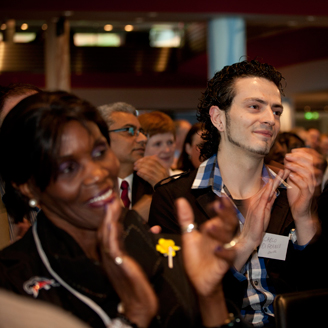Hiring the wrong person for a role is estimated to cost the employer over £20k, with that figure multiplying when it’s a management position.

When you're hiring staff, make sure that you follow our simple rules to avoid losing money...
Along with the recruitment costs and the time to process applications there’s productivity losses to account for. And, if the error isn’t detected and dealt with speedily, the fall-out across other staff. So here are some things to bear in mind in your next recruitment round:
- Competence and character – many employers talk about hiring attitudes then training the skills. In senior roles a certain level of competence is undoubtedly required, but when this is balanced with character traits that are in line with the team’s values the chances of success are near certain.
- Weak references – the best recruiters are masters of forensic telephone interviewing. Within minutes they are able to politely probe a referee, ultimately getting an honest answer to the unaskable question ‘Would you hire this person?’
- Multiple interviews by different people – one person’s point of view is just that, a single opinion. Candidates and interviewers have good days and bad days so even fast-growing companies should see their candidates at least three times, on each occasion with different people. They can then compare their findings and make a joint decision. This same team should meet again to review the new employee post appointment; this prevents the all too common and costly procrastination that follows bad hires.
- Too few candidates – with online tools available to recruiters don’t be afraid to cast a wide net. All too often when the wrong employee is taken on it’s the result of too few candidates at interview.
- Being overly secretive – it’s better to share your recruitment criteria openly so that the wrong candidates pull out early. One organisation I know even writes to short-listed candidates prior to interviews saying that whilst they are looking forward to meeting the candidate they should drop out now if they believe it’s okay to lie in business.
- Focusing on past experience over future potential – This leads to overlooking young talent who have yet to gain experience; conversely it can lead to hiring people who are living off past glories.
- Compromising the minimum requirements for personal characteristics – successful organisations are crystal clear about the types of people they want in their organisation, regardless of role.
Innocent drinks have 5 things they look for in every new employee:
- People who are smart
- People who have energy
- People who can deliver
- People who are curious
- People who live innocent’s values
EBay place high value on politeness, seeking people who demonstrate sincerity and gratitude to those they come into contact with.
Pret a Manger talk about providing ‘Good jobs for good people’ with statements like ‘We love action and loathe politics’ hinting at their selection criteria. Their website talks about the in-house ideas department that helps Pret be a better, kinder, easier place to work and shop, suggesting that they want employees to use their initiative and are unlikely to hire bureaucrats.
If you are engaged in a recruitment process spend some time identifying the 5 non-negotiable character traits you require in employees, then when interviewing seek evidence that demonstrates your candidates possess these characteristics.











